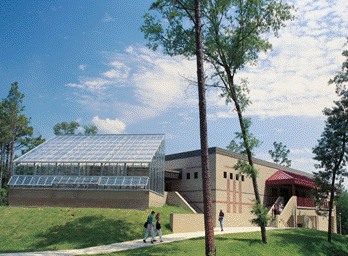
Dr. Theodore Fox
- Position: Associate Professor
- Department: Biology
- Office Location: Building 58, Room 62A
- tfox@uwf.edu
- Campus: 850.474.2754
Biography
Dr. Theodore Fox, an Associate Professor, leads research on several fronts. They include plant adaptations to abiotic stresses, plant responses to wounds and pathogen attack, and biologically active metabolites in plants. His recent research includes defense responses of dioscorea bulbifera, phenolic antioxidants in the medicinal plant Sestiana grandiflora and the stability of isolated algal chloroplasts.
For example, Fox and his students are trying to determine how a water grass, Echninocloa phyllopogon, is able to keep growing in conditions fatal to many crop plants. Fox, who joined UWF’s Biology Department in 2001, has taught graduate and undergraduate courses, including Plant Physiology, Medicinal Botany and Plant Biotechnology. He also is a long-time reviewer for Functional Plant Biology. He earned a Ph.D. in Botany from the University of Maryland and both a Master’s degree and a Bachelor’s degree in Biology from the University of Dayton.
Symbiosis, Physiologia, Crop Science and Zoology are just a few of the journals that have published his findings. Fox also has made numerous presentations; topics include plant defense mechanisms, the reaction of barnyard grass to flooding, hexokinase activity, and extraction and screening of bioactive compounds.
Degrees & Institutions
Ph.D. Botany, University of Maryland
M.S. Biology, University of Dayton
B.S. Biology, University of Dayton
Research
My lab is engaged in three areas of research in which undergraduate and graduate students participate: (1) plant adaptations to abiotic stresses, (2) plant responses to wounding and pathogen attack, and (3) biologically active metabolites in plants. Plant Adaptations to Abiotic Stresses. Echinochloa phyllopogon (watergrass) is an invasive weed in rice paddies. Unlike most crop plants, E. phyllopogon can germinate in an anaerobic environment and the coleoptile grows for at least three weeks without oxygen.
Since flooding can decrease crop yields by up to 20% annually, we are interested in discovering the molecular and physiological adaptations that permit E. phyllopogon to maintain active growth under conditions that lead to death in many crop plants. Currently, we are investigating the up-regulation of hexokinases and the subcellular localization of hexokinase isozymes in relation to flood tolerance.Plant Responses to Wounding and Pathogen Attack. Plants have developed several defense mechanisms to deal with mechanical wounding and infections by bacteria and fungi.
We are examining the induction of defense-related proteins induced in the cells and apoplast of leaves of Dioscorea bulbifera (air potato) that are mechanically wounded or challenged with bacterial or fungal pathogens. Preliminary studies indicate that salicylate may be an activator of the defense response in D. bulbifera and so we are also characterizing the defense response initiated by salicylate in the absence of bacterial or fungal elicitors. Biologically Active Metabolites in Plants.
We are continually collecting bulbils (a reproductive structure) from various populations of Dioscorea alata and D. bulbifera growing in northwest Florida and are propagating them in the greenhouse to screen for compounds that have herbicidal, antibacterial, or antifungal activity. Various tissues (leaves, stems, roots, bulbils) are extracted and the extracts separated by high-performance liquid chromatography (HPLC) to isolate terpenoid, steroidal, and flavonoid compounds that are tested in radish seed germination and Escherichia coli bioassays to screen for biologically active metabolites. We plan to expand this program to screen other plants native to the Florida Panhandle.
Classes Taught
- Plant Biotechnology
- Plant Physiology
- Medical Botany
- Introduction to Forensic Biology
Keywords: plant reactions to stress, plants and metabolites, water grass Echninocloa phyllopogon, plant physiology, Northwest Florida plants, abiotic stresses in plants, hexokinase activity in plants, bioactive compounds, dioscorea bulbifera, Sestiana grandiflora, botany



